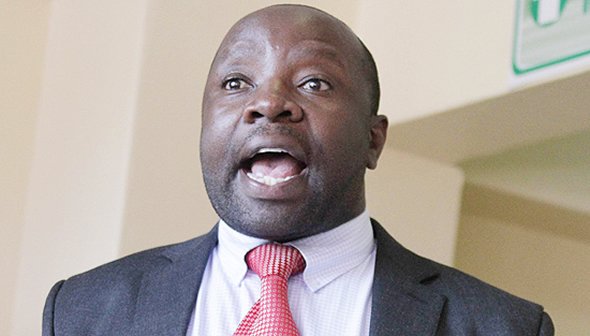Zimbabwe has been prejudiced of $5 billion in capital flight in the last three years with the bulk of the amount attributed to illegitimate embezzlement, Parliament heard on Tuesday.

Capital flight refers to the outflow of wealth from a country over a defined period. Such wealth can be in cash or commodities/non-monetary assets.
Bikita West MP and former Reserve Bank of Zimbabwe (RBZ) advisor, Munyaradzi Kereke, called for sterner measures to curb the incidence of capital flight, which is bleeding the economy.
“Zimbabwe’s macro-economic policies need to be re-aligned to decisively plug-off the high incidence of capital flight characterising the economy. Estimates as at June 2015, based on a combination of balance of payments analysis against Zimbabwe’s potential equilibrium performance (macro-economic steady state growth path) indicate that annually, Zimbabwe lost an average of $1.5bn through capital flight between 2012 and June, 2015,” said Kereke.
Judging by the given trend, the country has lost a cumulative $5.25bn over the last three and half years.
The drain from the economy has been and continues to be at the instance of both illegal and legitimate channels, he said.
“Of the estimated cumulative $5.25bn lost between January, 2012 and June 2015, about $3.15bn (60 percent) is estimated to have arisen from illegitimate (embezzlement) wealth transfers from the country by individuals and companies,” said Kereke.
He said a balance of around $21bn (40 percent) was estimated to have been on account of the broader market-related factors.
The legislator said the government needs to act swiftly to reverse the scourge as it negatively impacts on the success of the government’s Zim-Asset (2013-18) blue-print and economic prosperity.
The country is in dire need of funding to oil economic turnaround under Zim-Asset, which requires about $27 billion.
While reasons for capital flight vary from country to country, they often border around fears by wealth holders that the aggregate value of their wealth might fall due to drastic adverse exchange rate movements, fear that changes in tax policies may erode investment returns and scepticism that general macro -economic and financial instabilities may worsen overall economic performance and undermine worth of investments.
Kereke also blamed corruption and general rent-seeking behaviour leading to embezzlement transfers of wealth out of a country as a major catalyst in addition to routine disinvestments following autonomous decisions of investors offshore as investors may simply be taking out their money in line with their original investment decisions.
He said capital flight results in socio-economic and political hardships for the country as it leaves a financial vacuum in the domestic economy, which depresses markets for producers.
The trend, he explained, not only reduces savings, but erodes investment and job opportunities, erodes household incomes, reduces productive assets, erodes government revenues through reduced taxes, as well as undermining financial stability through the resultant cashflow short ages arising from the capital flight.
Kereke said capital flight was a problem in a dollarised economy where the central bank has limitations in terms of rebalancing financial asset prices through interest and exchange rates.
He said the subdued performance of the Zimbabwean economy, aggravated by outdated technology and low agriculture production have also “triggered a self propelling momentum driving out capital”.
The situation, he went on, has been compounded by austerity measures the country is implementing under the advice of the IMF, smuggling of precious minerals such as gold, diamonds and their exports in raw form.
Kereke also blasted “corrupt overpricing of imported equipment and consumables, driven by kickbacks” among other mismanagement practices and overvalued expatriate management contracts that siphon exorbitant management fees. The Chronicle






